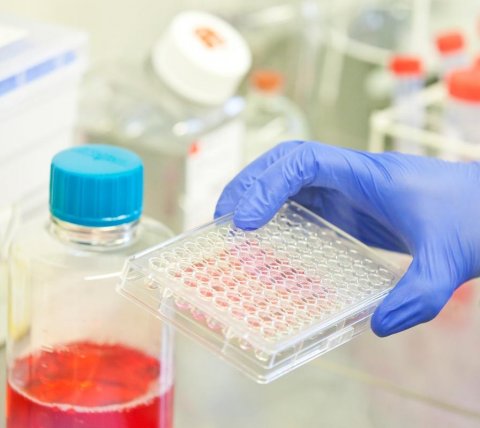News • Pandemic prevention
German lab developed coronavirus detection method
Investigators at Hannover Medical School (MHH) in Germany have developed a molecular assay for detecting the novel coronavirus SARS-CoV-2 (previously 2019-nCoV) on the automated Panther Fusion system by Hologic.
The preclinical assay is described online in the Journal of Clinical Virology. “Rapid diagnosis is critical to combatting the spread of pandemics, and the Panther Fusion system is well suited to this purpose,” said Albert Heim, M.D, head of molecular diagnostics at MHH. “Using inactivated virus from cell cultures and commercially available control materials, we adapted two recently published PCR protocols to run on the Panther Fusion system. Our next step will be to validate our assay on clinical samples.”

© MHH/Karin Kaiser
The emerging SARS-coronavirus-2 (SARS-CoV-2) can cause severe respiratory tract infections (COVID-19) and has been declared a public health emergency by the WHO. “It’s extremely gratifying to see our instrument system being used to quickly develop a response to an urgent public health threat,” said Kevin Thornal, president of the Diagnostic Solutions division at Hologic. “We specifically designed Panther Fusion and Open Access functionality to give diagnostic lab customers maximum flexibility, both for their day-to-day needs and to respond quickly to emerging threats.”
The Open Access functionality on the Panther Fusion system allows accredited medical laboratories to design and validate laboratory developed tests (LDTs) to run on the fully automated, high-throughput platform. Laboratories can run their LDTs simultaneously with commercially available CE-IVD assays in a random access model, without waiting to batch tests. Users of Open Access are required to follow all applicable local requirements for their laboratory and users in developing and validating their own LDTs on the Panther Fusion system.
The assay described has not received CE-IVD certification in Europe or clearance from the Food and Drug Administration (FDA) in the United States.
Source: Hologic
06.03.2020











